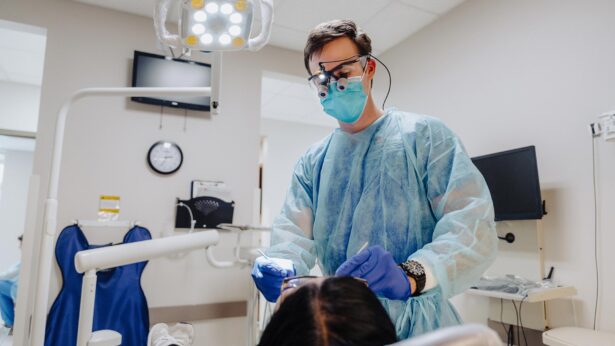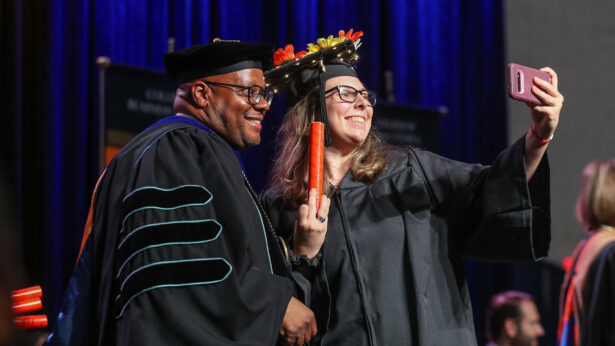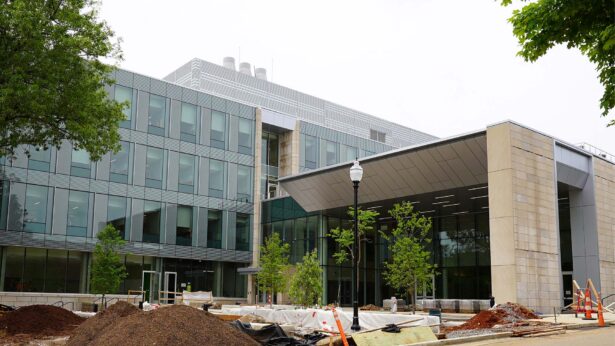“I just have this feeling that I am home and that I am 5 years old again,” says Samara Mattiello with a beaming smile as she reflects on Tennessee’s hilly, rural roads. She grew up on rural farmland in southern Brazil with parents who worked in the beef-production industry.
Mattiello joined UT Southern in early 2023 as an instructor of biology, but the road to her new home away from home in Pulaski featured a major roadblock.
In 2019, Mattiello was in a post-doctoral position in microbiology at South Dakota State University when she heard the faint sound of Portuguese, her native language, floating down the hallway. She followed the language trail to several fellow Brazilians and an introduction to Saulo Zoca, now her spouse.
Zoca, also originally from Brazil, was in a Ph.D. program in animal science and had developed an affinity for working with beef cattle producers through the extension program. He was soon looking for jobs in the southern United States with its climate and landscapes that better matched his rural Brazilian upbringing.
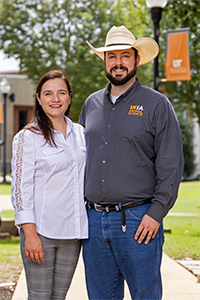
“South Dakota is not in the South. It just has ‘south’ in the name,” he says with a laugh.
His search led him to the UT Institute of Agriculture and a section of the state that includes Giles, Lawrence and Lincoln counties, the top three beef-producing counties in Tennessee. In late 2022, he began serving as a UT Extension beef cattle specialist in reproductive management based in Spring Hill. A typical day means Zoca travels the state providing educational programs to beef producers as part of initiatives such as the Tennessee Master Beef Program.
While Zoca was thrilled with his new position, he couldn’t truly feel at home until Mattiello and their young daughter, Luiza, moved from South Dakota to Tennessee. Much to the delight of Zoca and UT Southern, through a spousal hire support program, the UT System provided a teaching opportunity for Mattiello.
UT Southern had sought to fill a biology instructor position for several years, “And here she comes because of this spousal hire,” says Judy Cheatham, UT Southern provost and vice chancellor for academic affairs.
Mattiello had expertise in microbiology, teaching and lab work. In other words—a perfect fit.
But a challenge arose.
Mattiello received a call from UT Southern letting her know that, although she was qualified for the job, the campus did not have approval from the U.S. Department of State to host the necessary visa.
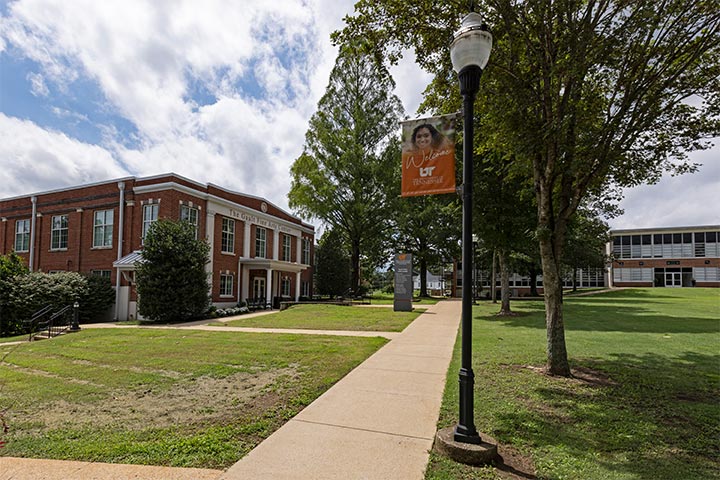
Staff from across the UT System tackled the challenge together.
Zoca reached out to Justin Rhinehart, UT Extension assistant dean for agricultural and natural resources and community economic development, and asked, “Is there anything we can do to make it work?”
Rhinehart acted immediately. He asked colleagues across the system how to support Zoca and Mattiello. UT Knoxville responded with its immigration experts who handle a large volume of cases each year with its more than 1,100 international students from 98 countries and 700 international faculty, staff and researchers. UT Southern has 60 international students from 30 countries.
As Cheatham says, “You can’t beat One UT.” Since moving into the UT System two years ago, the benefits to UT Southern have been immense. “For a small institution like UT Southern, to be able to reach out to experts (across the UT System), you can imagine I really did feel like a little child on Christmas morning,” she says.
UT Knoxville experts delivered a solution. That campus would sign an agreement to host Mattiello’s visa, and she would be stationed at UT Southern in Pulaski.
“This is the beauty of the UT System. Every campus has been helpful to us,” says Cheatham.
“It’s important, this connection between all the universities and the network we can build,” Mattiello says.
With the visa issue navigated, in early 2023 Mattiello and Zoca settled into a house in Lewisburg, situated comfortably between Zoca’s office in Spring Hill and Mattiello’s in Pulaski.
Mattiello wasted no time in making an impact at UT Southern. She began in the spring 2023 semester by teaching lecture and lab sections of biology. She is sharing her passion for research with undergraduate students and has long-term aspirations to contribute to the growth and progress of new programs and initiatives on the Pulaski campus.
For Mattiello and Zoca, they have found home.
“Everyone made me feel welcome here. And not only feel welcome, they want you here. And that means a lot to me,” Zoca says while Mattiello nods her agreement.

